As this is an area that requires advanced skills, this is not the appropriate place to explain this function in detail. Following is some basic information only. Contact support@happen.biz if further information is required.
Jim2 makes extensive use of scripting technology, providing unparalleled power to tailor to specific company and/or industry requirements.
As a default, the scripting engine is not available. This is to protect from potential issues with the database. This is also governed by Jim2 Security.
All information in this area is only relevant if on premises customers have permission to access the scripting engine. Scripts are written in DelphiScript (Pascal).
Scripts can easily be imported, and instantly become seamlessly integrated into Jim2.
To modify any existing scripts or create custom scripts, they will be stored, saved and available via the Script Editor screen.

1.On the ribbon, go to Tools > Scripting Engine.  This will open the Script Explorer screen. 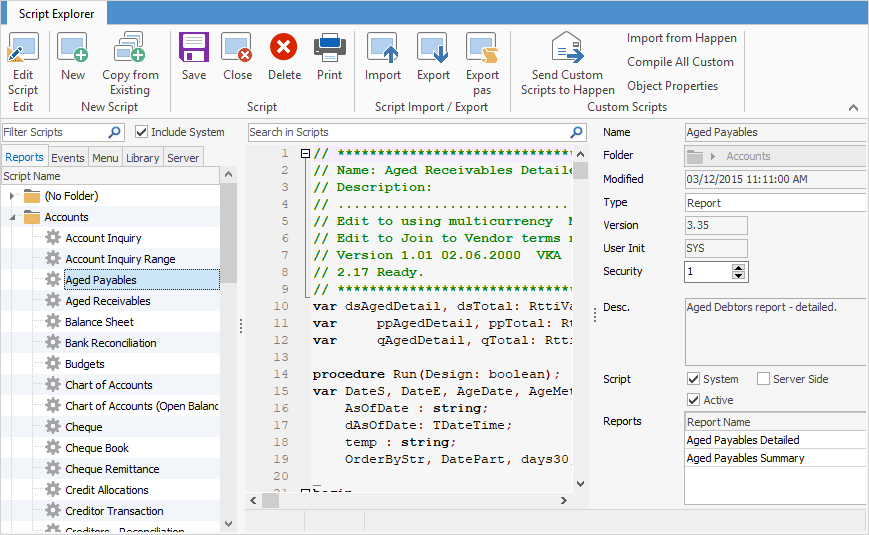 2.On the left-hand side of the screen is displayed a list of available scripts, identified by their name. Select a script to view or edit. 3.The tabs will provide access to the Component Palette – standard components, data access components, Jim2 components, TopGrid components, RBuilder components – for use in editing this script. 4.The details of the script selected will show in the right-hand side – including its name, the last modified date/time, the script type (report or export), the current version number of that script, the initials of the last author and a brief memo describing the script. 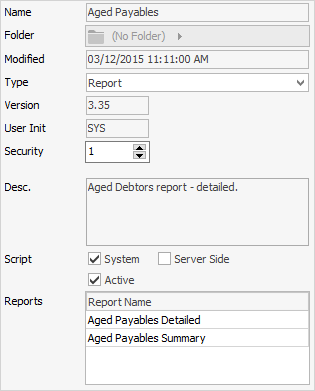 5.To edit the script, click Edit. The Init field in the footer will be updated with the logged user's initials. Upon saving, Jim2 will update the Modified date/time field, and increment the Version field by .01.
|
This is the area where scripts are edited.
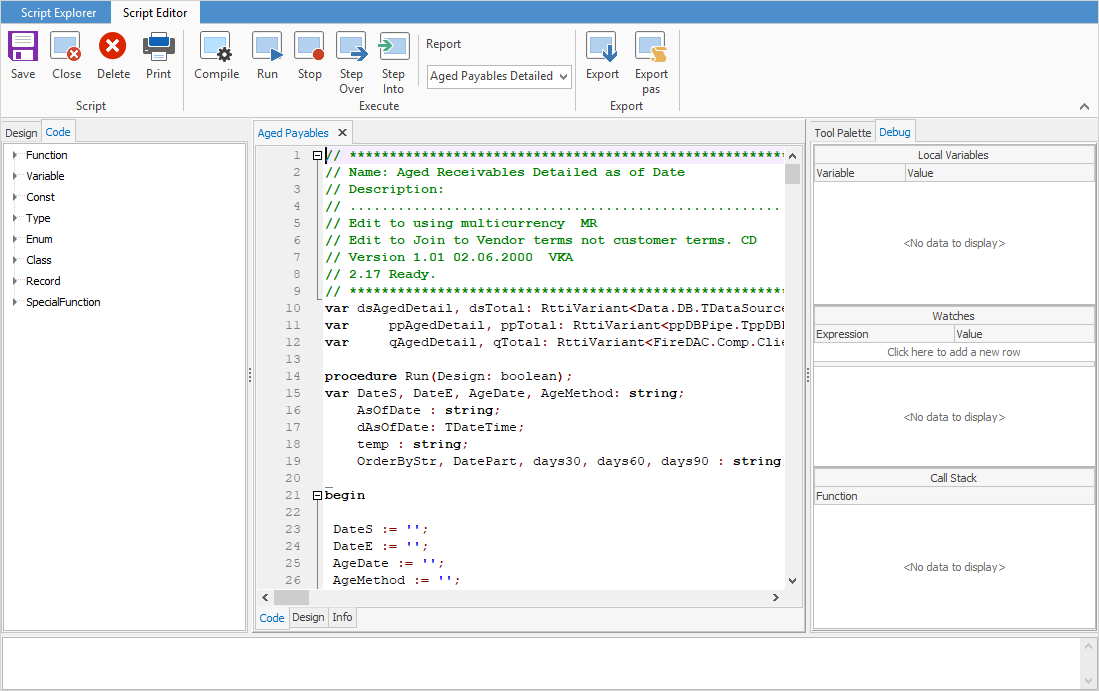
Select the required script, then click Edit Script on the ribbon.
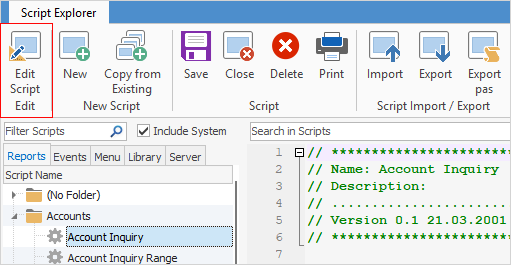
However, on the Info tab at the bottom of the screen, ticking the script to be a system script, making it active, and making it a server side script are all available.
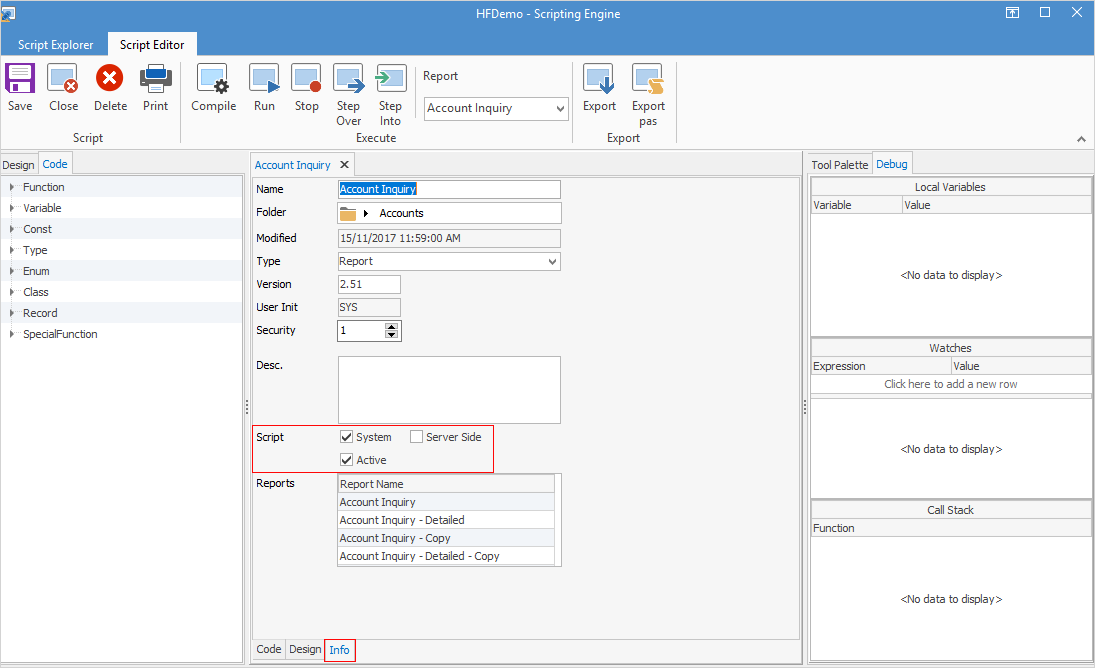 |
Further information



